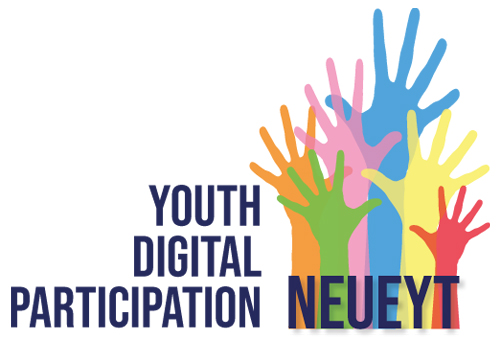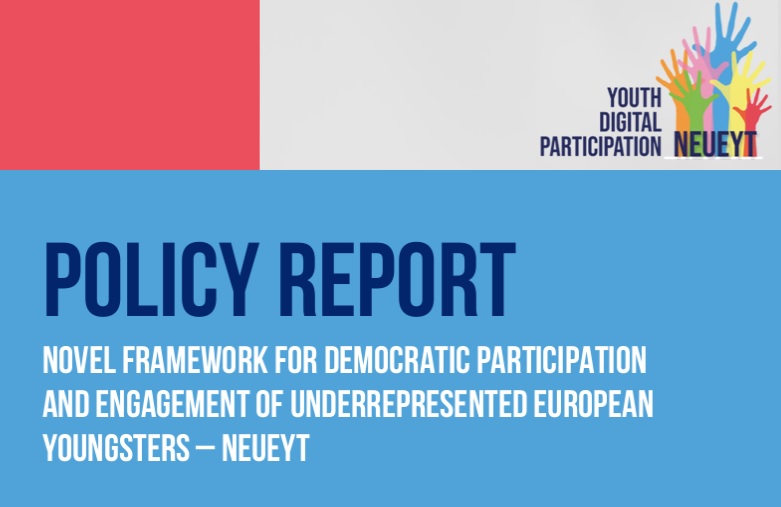Press Release NICOSIA 12 MAY 2023
The consortium of the Novel Framework for Democratic Participation and Engagement of Underrepresented European Youngsters – NEUEYT project has launched a policy report that involves important policy recommendations intending to influence public policy around the topic of the (digital) participation of young people in the democratic life of their community.
An elemental part of the report is the policy recommendation section which constitutes the outcome of the collective experiences of the eight initiatives (the action-oriented part of the project) and the input from the stakeholder-tables which have created at local level in every partner country in order to share decisions and validate the project deliverables.
The Policy recommendations aim at capitalizing all the results gained during the implementation of initiatives, concerning the development and testing of the framework and all the deliverables and outcomes generated by the testing phase. An international laboratory of experts and the mobility of youngsters and policy makers have supported, through engagement, the quality impact of the deliverables.
The recommendations initiate a discussion around the importance of the use of digital tools in democratic life by highlighting that “Policy makers and stakeholders should view digital tools as potentially valuable for enhancing participation of youngsters in democratic processes if used in respect of their peculiarity. Digital tools are however only complementary and secondary to live engagement. As not all youngsters have access to or want to use social media (SoMe), politicians should also visit schools and other relevant arenas where young people are present/active. Thinking in terms of completely replacing traditional tools and formats of interaction could be both counterproductive and risky for the democratic process itself.”
Following that, the policy recommendations are divided into four different yet interconnected parts which are then explained in more details. These read as follows:
I. Ensure sufficient and equal digital connectivity and access. This recommendation involves the sufficient digital connectivity for all irrespective of their location (central vs. remote).
II. Promote awareness-raising, education and training on use of digital tools & social media and media literacy among youngsters. This recommendation involves the design of educational programmes that will foster societal responsibility, tolerance, solidarity, and civic engagement, as well as the organisation of training courses for raising awareness for the proper use of digital tools/social media for all.
III. Enable stakeholders and policy makers to better understand and manage the particular way youngsters communicate via social media and digital tools. This recommendation includes the need for stakeholders and policy makers to entrust the youngsters with responsibility for activities and initiatives, and at the same time be able to accept mistakes and quest for support and amendments. Moreover, it is suggested that policymakers and stakeholders should be active listeners on an ongoing basis when engaging with youngsters, especially with regard to topics such as democratic participation.
IV. Different approaches to and formats of interaction between decision-makers and youngsters should be tested. For this recommendation, it is suggested that policymakers and stakeholders should listen to and (better) understand the needs and messages the youngsters are communicating through digital channels such that the former adapt to the ever-changing technology and upgrade their skills to better understand the needs of the latter. Moreover, policymakers should be explicitly show that they are interested in hearing young people’s voices and opinions, and even engage them as ambassadors for actively engaging other young people in political and civic processes.
















